Taylor Phinney: Overcoming self-doubt and hitting Olympic reset
American hunting medal in Rio time trial
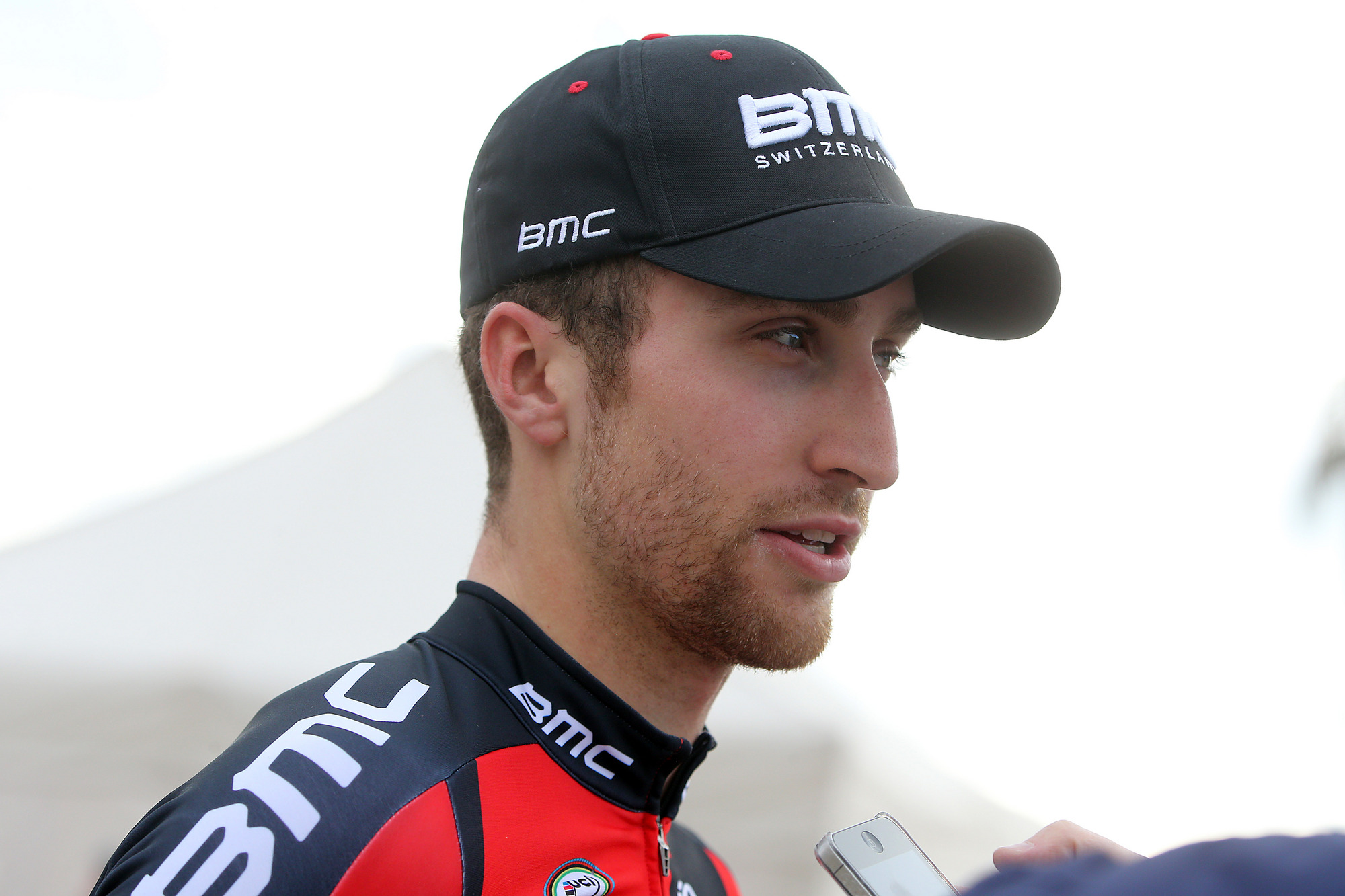
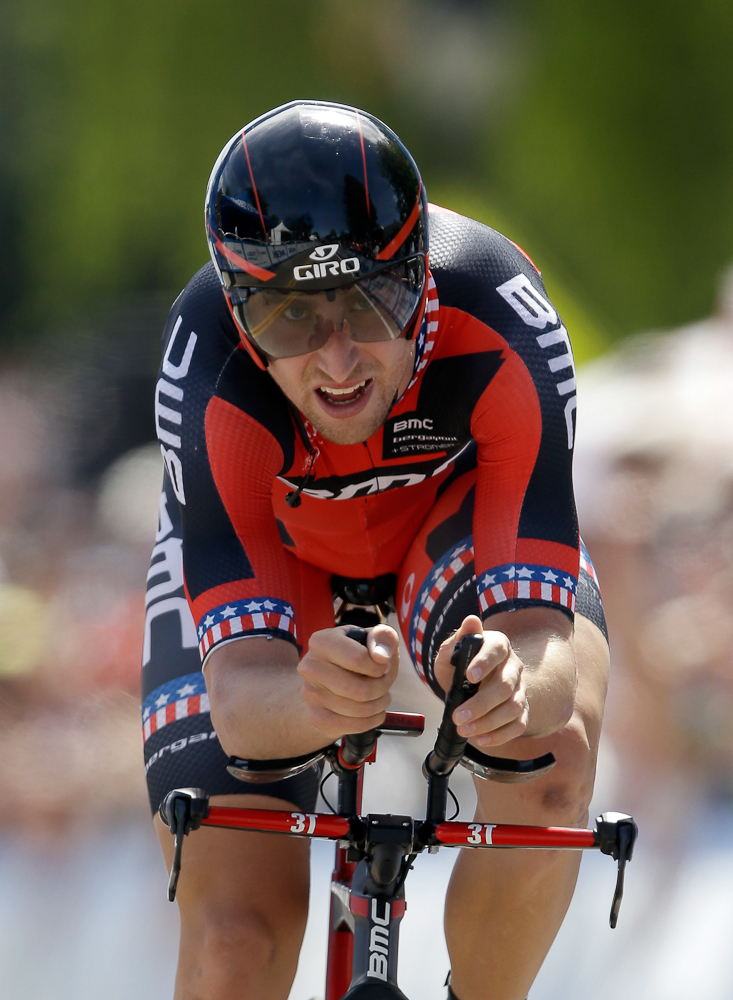
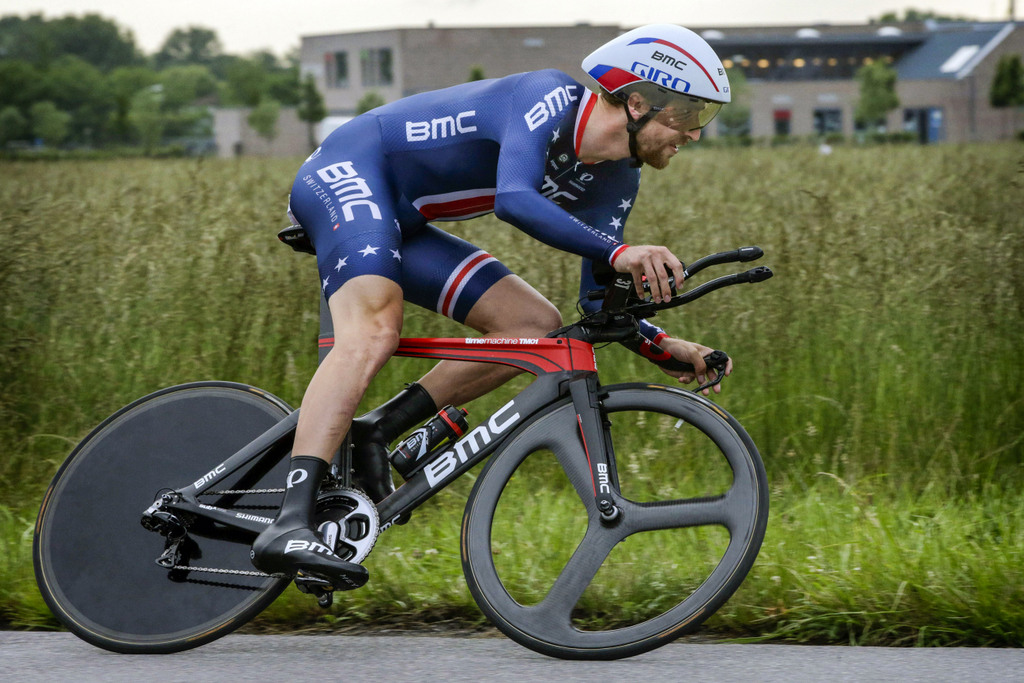
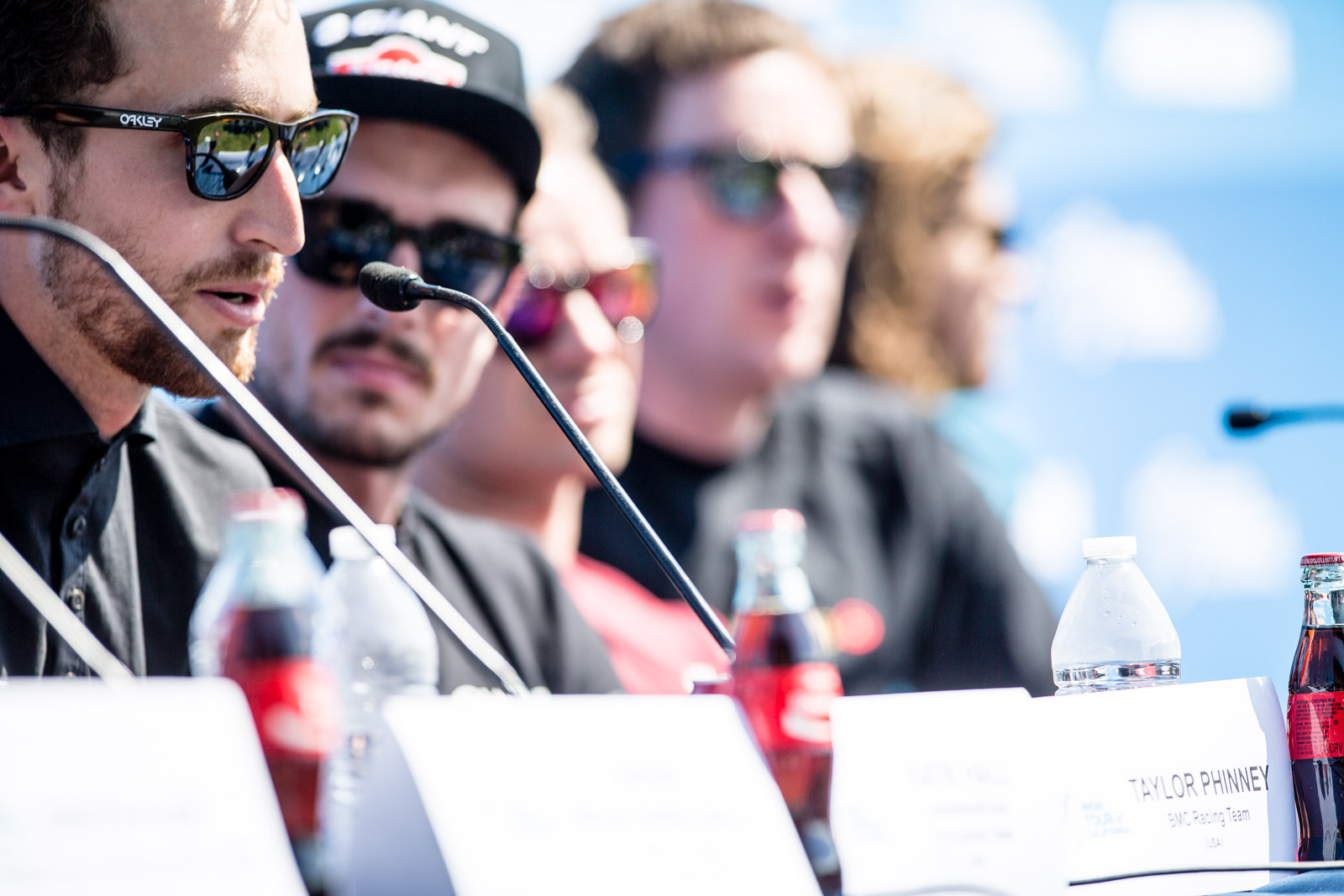
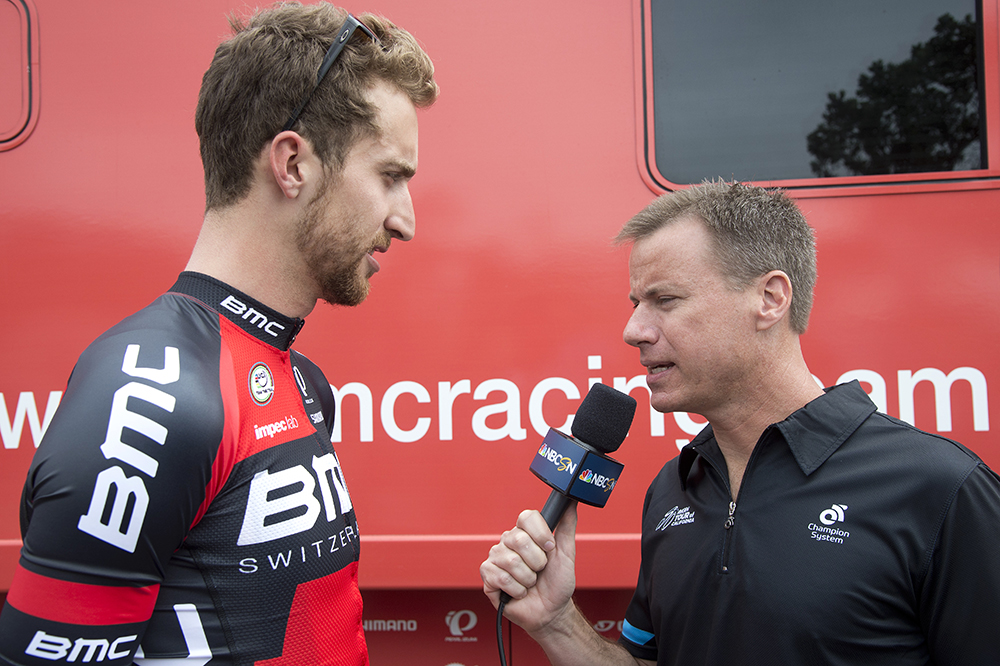
Few riders will touch down in Rio with their careers so intrinsically and emotionally tied to the Olympic Games as Taylor Phinney. After all, there aren't many riders who can claim to have Olympic champions as parents, who brought gold medals into show-and-tell at school, and who have staked so much on success this time around.
Still just 26 years of age, Rio marks Phinney's third Games after a baptism of fire on the boards as a teenager in Beijing, and the two fourth places in the road race and the time trial in London four years later. Coming so close to medals in 2012 might typically gnaw away at a rider but, as Phinney explains, so much has happened in the last two years of his life that everything he has achieved and everything he has lost is seen with a greater sense of perspective.
"London was a pretty long time ago, and I do see myself as a different human being in the way that I view things and how everything fits together," Phinney tells Cyclingnews.
A huge factor in Phinney's outlook stems from the career threatening crash he endured just over two years ago when he broke his left leg in a horrific race accident. A long and painful rehabilitation followed with operations to heal the physical wounds and support from those around him to deal with the mental and emotional traumas he sustained.
A return to cycling followed in 2015, and success came with it, but Phinney admits that it has taken the Rio Games for him to truly re-set his career and put to rest the doubt had led him to question his future within cycling.
"I went through a period where I was strongly considering just taking a break," he says when asked about rumours he considered retirement.
"I was thinking about stepping away and travelling. That would have been all on my bike but I realised that in life there's always a balance and being able to race my bike professionally is something I'm very lucky to do. But to come to that conclusion, I had to question everything.
Get The Leadout Newsletter
The latest race content, interviews, features, reviews and expert buying guides, direct to your inbox!
"I'm sure at some point that the doubts and the questions will start to creep in again but the most important thing I've learnt is to have that conversation with yourself and then to grow as a human first and athlete second.
"I say a lot of things," he says before pausing, "but I'll most probably be racing next season. Yeah, I'll be racing."
Phinney points to a fellow Olympian, Jesse Sergent, who also suffered a serious crash, but has recently turned away from cycling to pursue new goals.
"Look at one of my really good friends Jesse, who just retired. This is a sport that is very difficult and causes a lot of confusion and self-doubt. There aren't a lot of team environments equipped to help riders through those sort of episodes," he says.
"I think that everyone one of us has come to the point where we thought, maybe we shouldn't do this, but through giving myself the chance to think about doing something else and taking a step away, I've been able to come full circle and create more understanding as to why I do this, why I race my bike and what I means to me."
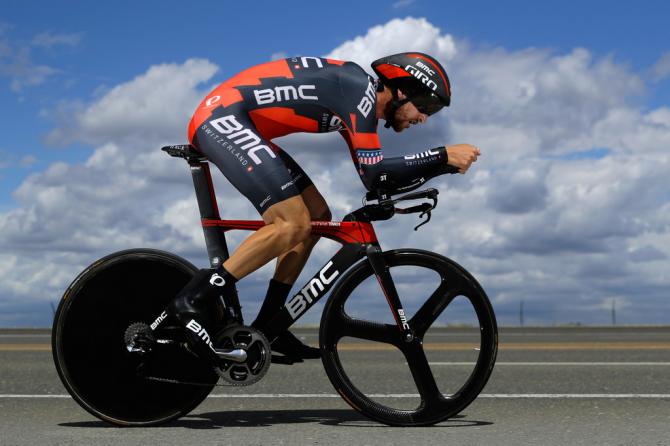
Reaching equilibrium
If Phinney has found balance physically, in both his right and left legs, as well as mentally, it is has been through the help of his support crew. After the Classics campaign this year, he returned to the US to refocus and recalibrate. The Olympics that had been pencilled in as his main objective were approaching and the decision was made to relinquish any desires of racing a Grand Tour and simply focus on the Rio time trial. There would be one more trip to Europe in June for a small stage race but after that it was back to Colorado.
"I honestly felt like I hit that reset button in the last few months as I trained for the Olympics. I hadn't felt that sense of purpose and intention in my training since I returned to the sport. Since my return I felt lost and being able to train for something that I really believe in and I'm really passionate about has opened my eyes again to my initial love, riding my bike. So if I win a medal I'll be over the moon, but I don't think that's going to change the current excitement that I have."
Flying under the radar
With a four-week training camp in his legs, Phinney lands in Rio with hope, albeit little expectation on his shoulders, at least from the media. It's four years since arguably the best time trial of his career when he took silver behind Tony Martin in the Valkenburg Worlds, and he hasn't had an individual win outside of the US since before his accident. A few years ago the lack of attention might have bothered Phinney, who by his own admission probably talked a little too much, tweeted too often and didn't always focus on the solitude and dedication an athlete needs.
"I'm loving being off the radar," he says. "I've had a lot to wade through in the last month with the Olympic stuff but I've shut it down a bit on Twitter, for example. I guess I used to feel the need to broadcast a lot of things but over the last year I've not had that feeling, that I've not had to share that side. Maybe I feel like I can share more through interviews now, or through talking to people or through pictures on Instagram, but it's all good.
"But the time trial… There's as much riding on that race as I want, I guess. I was pretty nervous to make the team, so the first victory was making the squad. During the off-season I wasn't sure if I was going to be at a competitive level or better than I was four years ago. I feel a lot smarter and more understanding of my own body in order to be the best athlete I can be. We'll see what the competition brings but just from a personal standpoint I’m very happy with where I am.
"I'm confident that I'll have a ride that I'll be proud of. As far as where that puts me, I'm not really sure, but I want to medal. That's what I want to do at the Olympics because that's the goal of being there. The Olympics is the pinnacle of the sport, in my opinion."
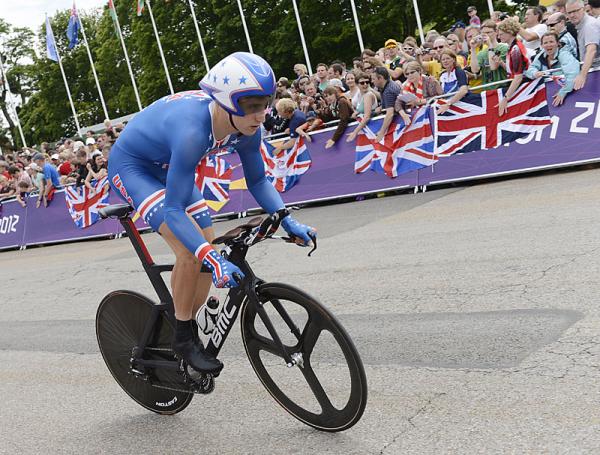
Writing history
The time trial course may not suit Phinney's natural characteristics as a rider, with the punchy climbs more tailored to Chris Froome or Tom Dumoulin – the two leading favourites for gold – but Phinney has used his build-up to focus specifically on the training requirements needed and points to Valkenburg – where the climbs came thick and fast – as his reference point.
"On paper it's not a perfect course for a guy of my size but it's one that I've been training specifically for. So I've been training to go at capacity and then have a little bit of rest and then pick up my speed. The first climb is pretty trying but both climbs are short. The longest ever TT was in Valkenburg at Worlds and that was really hilly and I didn't think I'd do well. I like that, going over capacity, having a descent to recover and then going again."
Going again is perhaps a fitting mantra for the Boulder-based American. A career that promised so much, but was punctured by a serious injury, has come full circle, returning him to the event he grew up idolising through the success of his parents.
"I don't know how old I was exactly but I remember just looking at the medals when I was a kid, maybe I was seven or eight, and I'd bring them to show-and-tell. They would be hanging around the house and I would get them out just to look at them. They're a fascinating thing… Just this piece of metal with a coating on but they mean so much for so many people."
Maybe there will be another Olympic medal hanging up in the Phinney residence after Rio and show-and-tell will be a whole lot more personal for a rider so passionate about the Olympics.
Daniel Benson was the Editor in Chief at Cyclingnews.com between 2008 and 2022. Based in the UK, he joined the Cyclingnews team in 2008 as the site's first UK-based Managing Editor. In that time, he reported on over a dozen editions of the Tour de France, several World Championships, the Tour Down Under, Spring Classics, and the London 2012 Olympic Games. With the help of the excellent editorial team, he ran the coverage on Cyclingnews and has interviewed leading figures in the sport including UCI Presidents and Tour de France winners.
